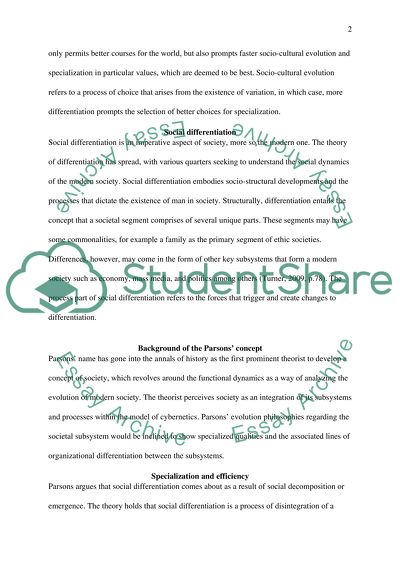Cite this document
(“Parsons Theory of Evolution Essay Example | Topics and Well Written Essays - 2000 words”, n.d.)
Retrieved from https://studentshare.org/sociology/1464276-parsons-theory-of-evolution
Retrieved from https://studentshare.org/sociology/1464276-parsons-theory-of-evolution
(Parsons Theory of Evolution Essay Example | Topics and Well Written Essays - 2000 Words)
https://studentshare.org/sociology/1464276-parsons-theory-of-evolution.
https://studentshare.org/sociology/1464276-parsons-theory-of-evolution.
“Parsons Theory of Evolution Essay Example | Topics and Well Written Essays - 2000 Words”, n.d. https://studentshare.org/sociology/1464276-parsons-theory-of-evolution.


